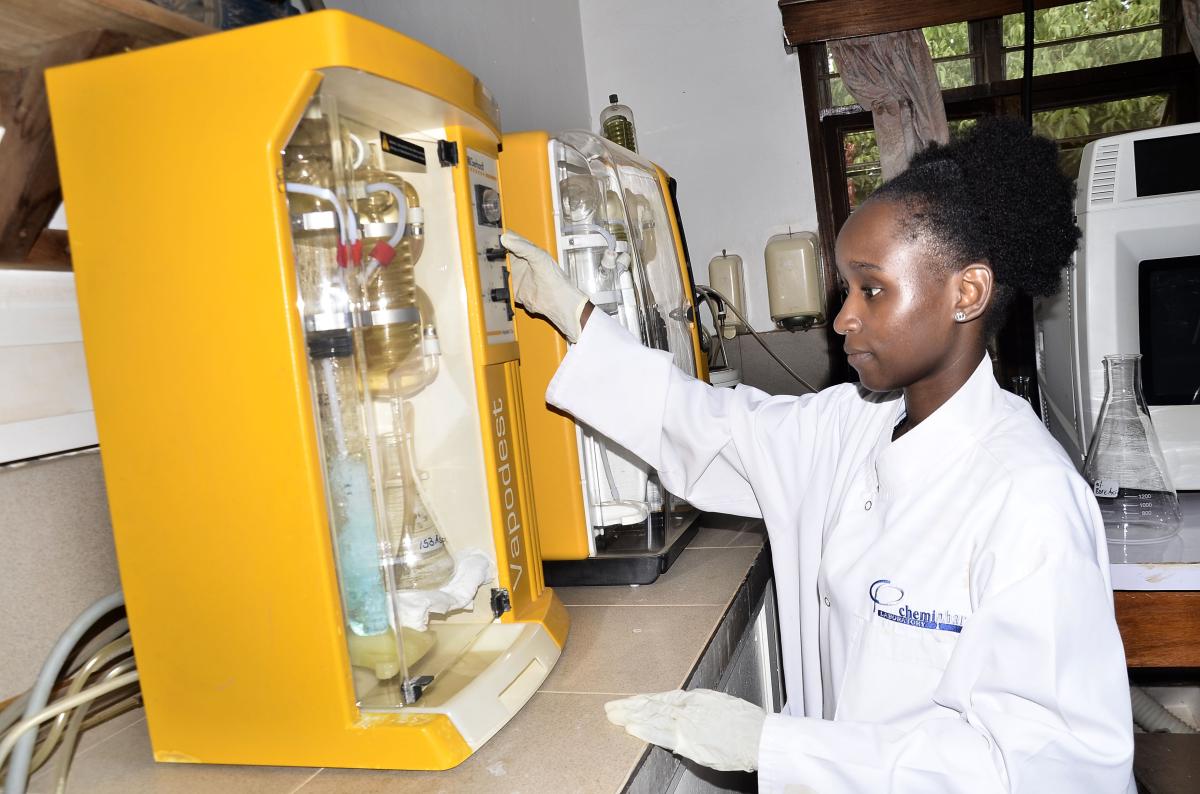Saving lives through quality control in Uganda
Catherine Asaba Mbigidde,24, works as a Chemical Analyst at Chemiphar Uganda Limited, an analytical laboratory and inspection company located in Kansanga, a Kampala suburb.
Asaba spends most of the time in the laboratory analysing the composition of different parameters found in samples of products brought to the company for analysis to ensure that they meet the set standards.
The company covers a wide range of products including seed testing, pharmaceuticals and cosmetics as well as food and beverages.
Despite being a graduate of Food Science and Technology from Uganda Christian University, Asaba confesses she knew little about the practical aspect of chemical analysis, since there was limited exposure at university.
According to her, the Work Readiness Programme enabled her to get a detailed grasp of the topics she studied while at university.
“I have learnt a lot of technical skills. When I came in at first, I didn’t know much about the lab. Yes, I did Chemistry, but it was at a different level. The work I do here is about working with samples. We did practicals at university, but there were not so many because most of the laboratories were not well equipped,” she says.
Asaba says that by the time she left university, she was only familiar with analysing moisture, protein, fats and ash.
She has since expanded her expertise to cover more areas including water analysis.
“When you don’t have the practical bit of it, then you will not be able to work because it will be hard for you to relate what you learnt to what happens in the real world. Different samples of products are brought here, and we test them for different parameters,” she says.
She says that for foods and beverages, they look out for parameters such as starch, carbohydrates, proteins and also establish the composition of those components.
Asaba says there is a limit for each component found in food or juice and that these parameters must be in line with the set standards before the Uganda National Bureau of Standards allows it to go on the market.
Each country has its own limit and in Uganda, this mandate is implemented by the Uganda National Bureau of Standards. She says that taking shortcuts, or employing non-professionals is likely to compromise the quality of products which may affect the health of consumers and the country’s economy, as substandard exports will be rejected by some countries.
“Our milk and maize have been rejected by Kenya due to quality issues. We still have a long way to go,” she says.
Apart from the technical aspect, Asaba says the training enabled her to acquire better communication skills, sticking to work ethics and being able to handle emotions at work.
Like most focused youthful employees, Asaba plans to enroll for a master’s programme in Food Science.
“We have learnt what is required of us in the real world of work. We have also been exposed to people who can help us to grow career wise,” Asaba says.
Latest news from this project
No news

